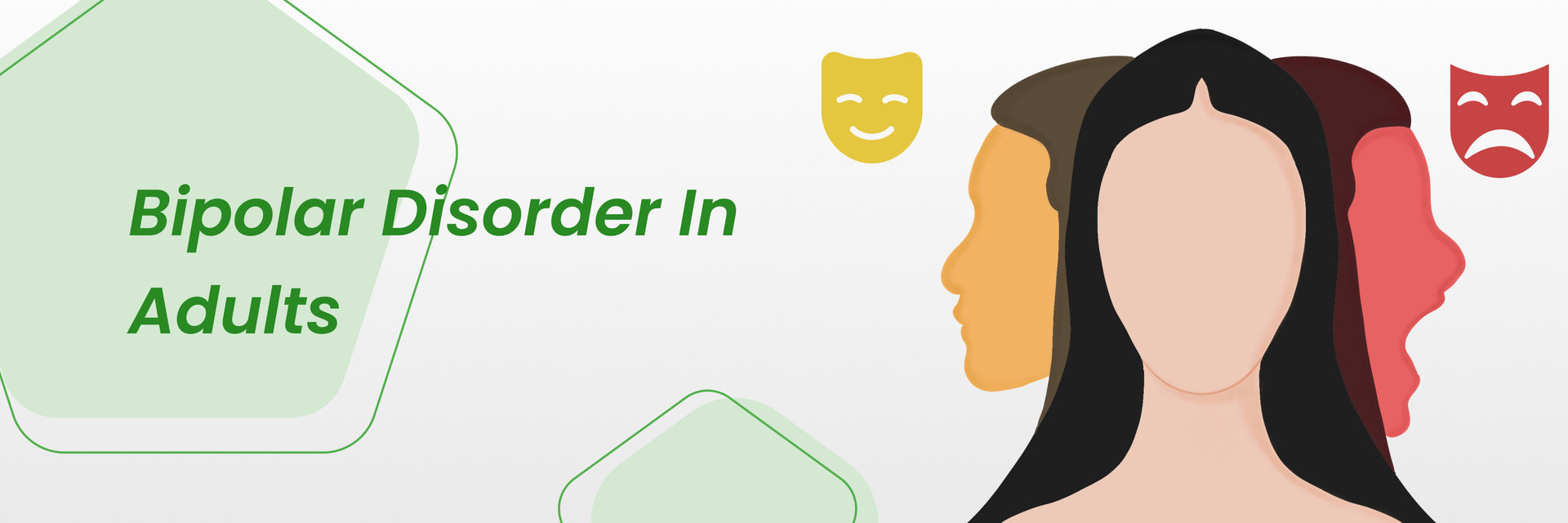Many women go through postpartum depression after childbirth; the global statistics are approximately 1 in 10 women.
But until when? Can postnatal depression persist even a year after childbirth?
The answer is Yes, it can. Let's understand why.
Postnatal depression, also known as postpartum depression, is a mood disorder affecting new mothers after childbirth. It usually begins within the first few weeks to months postpartum, with symptoms like intense sadness, anxiety, and fatigue. While many women feel better within several months, about 10-20% of mothers may continue to experience postnatal depression for a year or longer.
Addressing long-term postnatal depression is crucial because it impacts the mother's mental health and her family's well-being. Persistent symptoms can hinder a mother's ability to care for her child, affecting the child's development and straining family relationships. Early recognition and intervention are key to reducing these negative effects and fostering a healthier family environment.
Dr. Vikas Patel, a Psychiatrist from Ludhiana, explains, "We often encounter cases where postnatal depression persists even a year after childbirth. While many women experience mood changes in the weeks following delivery, some continue to struggle with depressive symptoms well into the first year of their baby's life. Recognizing the persistence of these symptoms allows for timely intervention and better outcomes for both mother and child."
If you're facing ongoing postnatal depression after a year, consulting with a Psychiatrist is essential to explore further treatment options—seek support and guidance today!
Causes of Postnatal Depression After a Year
Why does postnatal depression persist for some mothers even after a year? Let's find out.
Causes of Postnatal Depression After a Year:
- Hormonal Imbalances:
- Postnatal depression can be influenced by significant hormonal changes that occur after childbirth.
- These imbalances can affect mood and emotional stability, sometimes lasting well beyond the initial postpartum period.
- Ongoing Stress and Lack of Support:
- Continuous stress from caring for a newborn, lack of sleep, and daily responsibilities can contribute to prolonged depression.
- A lack of emotional and practical support from family, friends, or partners can exacerbate isolation and helplessness.
- Pre-Existing Mental Health Conditions:
- Women with a history of depression, anxiety, or other mental health issues are more likely to experience extended postnatal depression.
- Pre-existing conditions can intensify the emotional challenges of motherhood.
- Traumatic Birth Experiences:
- A difficult or traumatic childbirth can lead to long-lasting emotional distress.
- This trauma can hinder recovery and prolong the symptoms of postnatal depression.
Symptoms of Long-Term Postnatal Depression
Did you know that nearly 50% of mothers with postpartum depression are not diagnosed by a health professional?
Postnatal depression is a type of depression that occurs after childbirth. It is more severe and longer-lasting than the "baby blues."
Symptoms of Long-Term Postnatal Depression:
- Persistent Sadness and Anxiety:
- Continuous feelings of sadness, hopelessness, and excessive worry that don't go away.
- Fatigue and Changes in Sleep Patterns:
- Extreme tiredness and difficulty sleeping, even when the baby is asleep.
- Difficulty Bonding with the Baby:
- Feeling disconnected from the baby and struggling to form a loving bond.
- Irritability and Mood Swings:
- Frequent mood changes and irritability, often without clear reasons.
- Physical Symptoms:
- Experiencing physical issues like headaches, stomach problems, or other unexplained aches and pains.
Recognizing the signs and seeking help early can make a significant difference in managing postnatal depression and improving the quality of life for both mother and baby.
Noticing these symptoms? Seek help from a healthcare provider today! Talk to us today.
Risk Factors for Extended Postnatal Depression
Are you curious about what increases the risk of long-term postnatal depression?
Risk Factors for Extended Postnatal Depression:
- History of Depression or Anxiety:
- Women with a previous history of mental health issues are more prone to extended postnatal depression.
- Lack of Social Support:
- Limited support from family, friends, or community can increase feelings of isolation and depression.
- Relationship Problems:
- Difficulties in relationships with a partner or family members can contribute to prolonged depression.
- High-Stress Levels and Major Life Changes:
- High levels of stress from life changes, such as moving or financial difficulties, can exacerbate postnatal depression.
Impact on Mothers and Child Development
How does long-term postnatal depression affect mothers and families? Let's explore.
Effect on Mother’s Physical and Mental Health:
- Physical Health:
- Persistent fatigue, headaches, and other physical ailments.
- Mental Health:
- Ongoing feelings of sadness, anxiety, and low self-esteem.
- Increased risk of developing chronic mental health issues if untreated.
- Child Development:
- Delays in emotional and social development due to lack of bonding and interaction.
- Potential behavioural issues stemming from the mother’s emotional state.
- Family Dynamics:
- Increased tension and stress within the family.
- Challenges in maintaining a stable and supportive environment for the child.
Strain on Relationships with Partner and Other Children:
- Increased conflict and misunderstandings with partners.
- Emotional distance and lack of communication.
- With Other Children:
- Feelings of neglect and jealousy among siblings.
- Difficulties in managing children’s needs.
Facing challenges in the family due to postnatal depression? Get in touch top psychiatrist for professional support today!
Diagnosis and When to Seek Help
Importance of Recognizing Symptoms and Seeking Timely Help:
- Early Detection:
- Identifying symptoms early can prevent the worsening of the condition.
- Timely intervention can lead to better recovery outcomes.
- Health Impact:
- Reducing the risk of long-term health issues for both mother and child.
How Healthcare Providers Diagnose Postnatal Depression:
- Evaluation:
- Healthcare providers use screenings and questionnaires to assess symptoms.
- Discussion of the mother’s emotional and physical health history.
- Observation:
- Monitoring behaviour and interactions with the baby and family.
- Check for signs of severe mood swings, anxiety, and other symptoms.
When to Consult a Doctor or Mental Health Professional:
- Persistent Symptoms:
- If feelings of sadness, anxiety, or fatigue last more than two weeks.
- Interference with Daily Life:
- Difficulty caring for the baby or managing daily tasks.
- Thoughts of Harm:
- Experiencing thoughts of self-harm or harming the baby requires immediate help.
Treatment Options for Postnatal Depression After a Year
What are the treatment options for postnatal depression that persists beyond a year?
Therapy:
- Cognitive-behavioral therapy (CBT):
- Focuses on changing negative thought patterns and behaviours.
- It helps in developing coping strategies to manage depression.
- Interpersonal Therapy (IPT):
- Addresses issues in personal relationships that may contribute to depression.
- Improves communication skills and social support.
Medication:
- Antidepressants:
- Effective in treating moderate to severe postnatal depression.
- Some antidepressants are safe for breastfeeding mothers; consult a doctor for specific recommendations.
Support Groups:
- Benefits:
- It provides a sense of community and shared experiences.
- Offers emotional support and practical advice from other mothers.
- Reduces feelings of isolation and loneliness.
Lifestyle Changes:
- Self-Care:
- Focus on time for yourself to relax and recharge.
- Exercise:
- Regular physical activity can boost mood and energy levels.
- Nutrition:
- A balanced diet supports mental and physical health.
Struggling with long-term postnatal depression? call us to book your appointment today Explore these treatment options with your healthcare provider today!
Preventing Long-Term Postnatal Depression
How can new mothers prevent prolonged postnatal depression?
Tips for New Mothers:
- Build a Strong Support Network:
- Stay connected with family, friends, and support groups.
- Don’t hesitate to ask for help when needed.
- Practice Self-Care:
- Make time for activities that you enjoy and that relax you.
- Ensure you get adequate rest and nutrition.
- Stay Active:
- Engage in regular physical exercise to boost your mood and energy levels.
- Communicate :
- Talk about your feelings with your partner and close friends.
- Seek professional help if you notice persistent symptoms.
Role of Partners and Family:
- Emotional Support:
- Offer empathy and understanding.
- Practical Help:
- Assist with childcare and household chores.
- Encouragement:
- Encourage the new mother to seek professional help if needed.
Conclusion
Understanding that postnatal depression can persist beyond the first year is crucial for both mothers and their children. Recognizing the symptoms and seeking appropriate treatment can improve the quality of life for everyone involved. If you or someone you know is struggling with postnatal depression, it's essential to seek help and explore the various treatment options available.
Ready to take the next step? Seek help and start your journey to recovery today! Talk to us today.
Reference
https://www.mayoclinic.org/diseases-conditions/postpartum-depression/symptoms-causes/syc-20376617
https://my.clevelandclinic.org/health/diseases/9312-postpartum-depression
https://www.nhs.uk/mental-health/conditions/post-natal-depression/overview/






